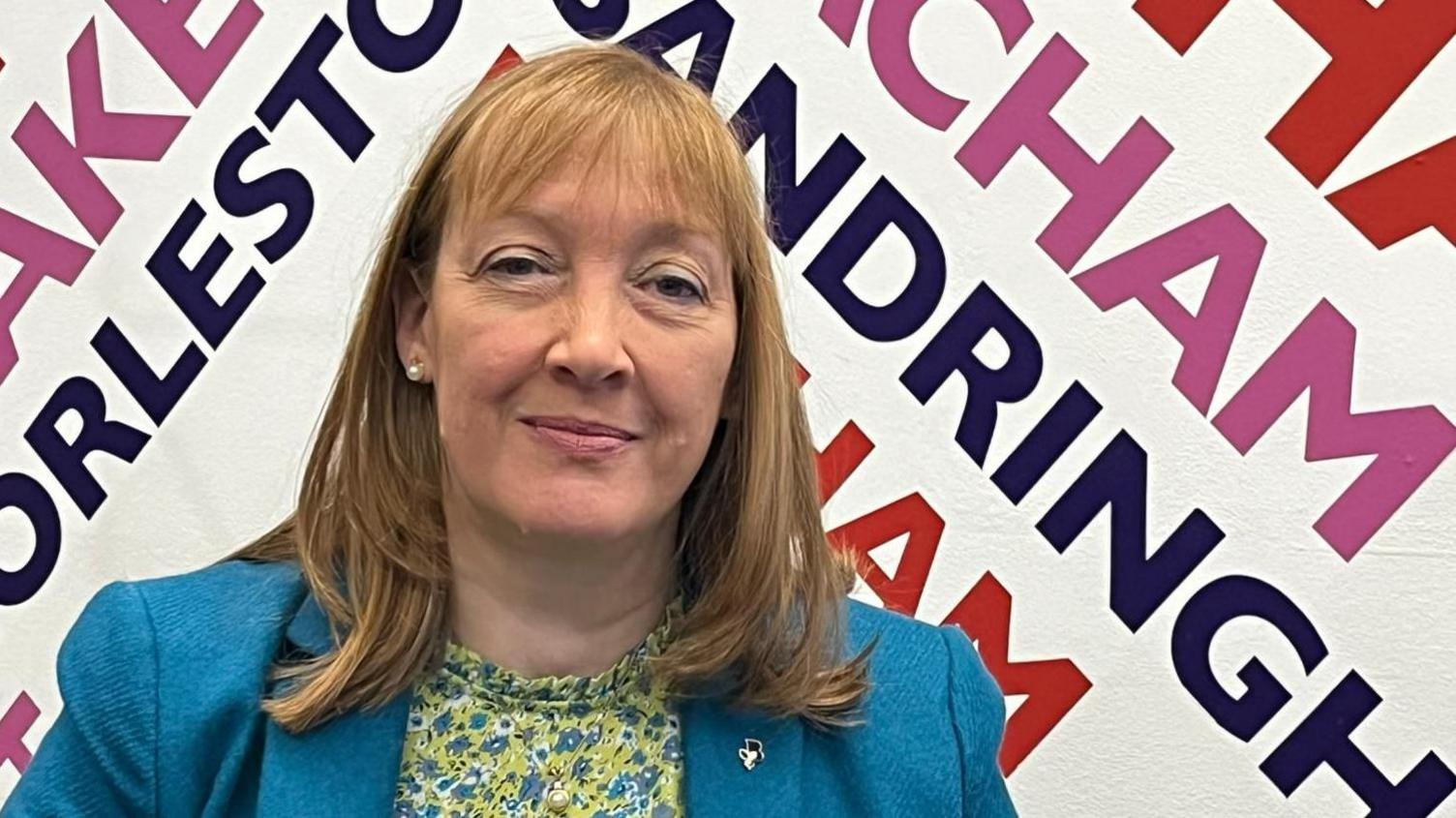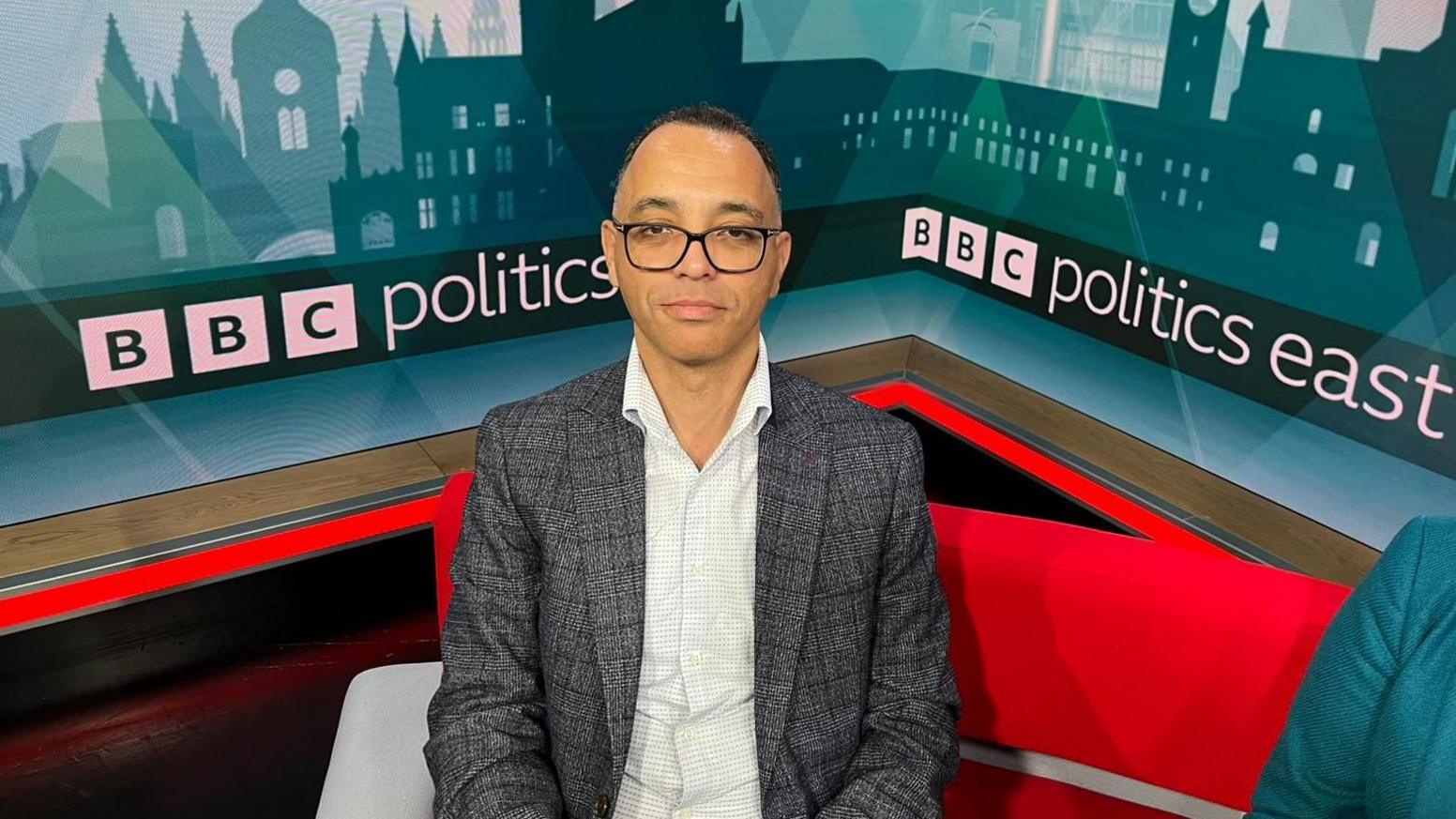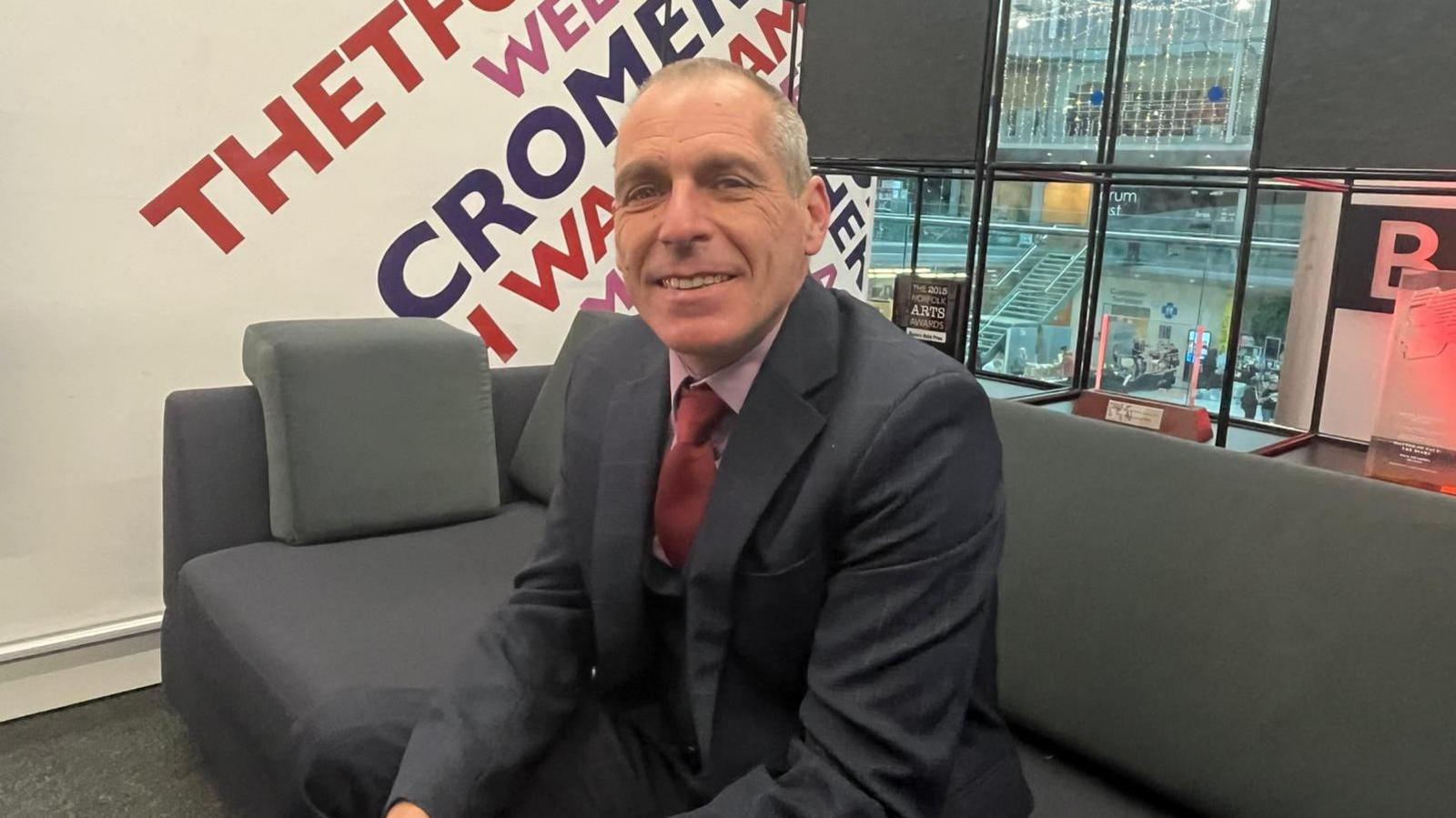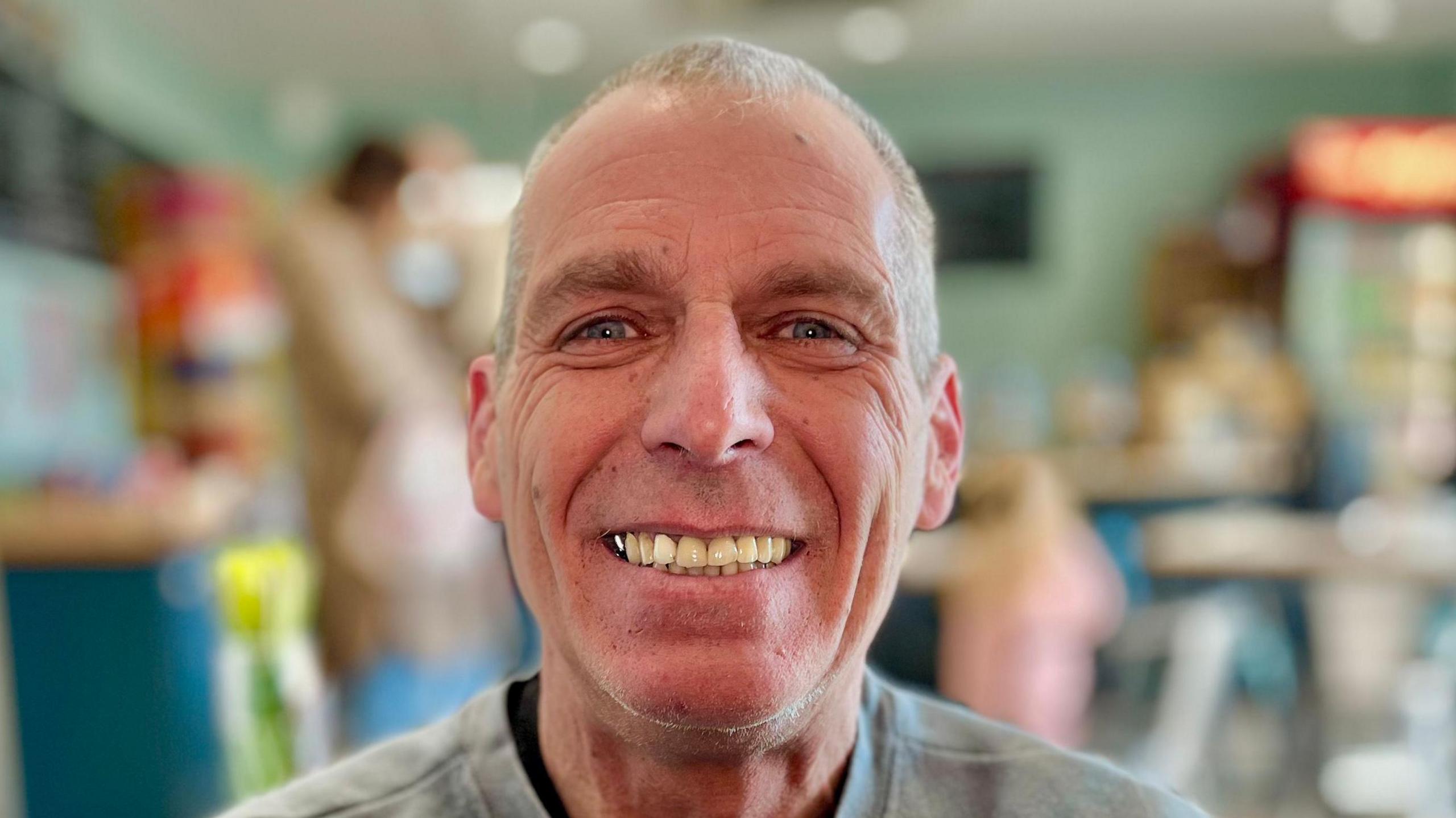From wealth tax to training relief - leaders share budget hopes

Nova Fairbank called for "no more tax on businesses"
- Published
Business, union and charity leaders from the East of England have shared their hopes for the upcoming budget, with focus on child benefit and wage increases.
Chancellor Rachel Reeves will unveil a new package of tax and spending measures to the nation on Wednesday, which is expected to include the scrapping of the two-child benefit cap.
Nova Fairbank, chief executive of the Norfolk Chambers of Commerce, told BBC Politics East that business tax and increased National Insurance had contributed to a "hostile environment".
She added that businesses "were really struggling" and urged the government to "think long-term" about its policies.
A Treasury spokesperson said the government was "pro-business" and "the tax decisions we took at the Budget last year mean we have been able to deliver on the priorities of the British people".

Tim Roberts, from the union Unison, wanted the tax focus to be on wealth rather than work
Tim Roberts, regional secretary of the public sector workers' union Unison, said members wanted "a Budget which invests in public services and the workers that deliver them".
"The chancellor needs to be focusing on taxing wealth rather than work," he said.
He said there were ways the government could bring in more money to invest in public services, including a 1% tax on assets over £5m, which "would raise £10bn a year".
Across the government's East region, wages have gone up on average by 6% over the last year, but Mr Roberts said the public sector was not seeing that rise.
"For those that stay in work in the public sector, the ongoing pressure on wages has delivered... less-than-inflation pay rises," he said.
He welcomed the potential scrapping of the two-child benefit cap and said it would be "worth the money", adding "children are being punished".
"What's clear is that people voted for change at the last election and they haven't seen that change yet," Mr Roberts said.
"There is a lot of frustration, particularly in the public service, because they know how essential their work is.
"People need stability, and they need to see the change now."

Peter Dutch wanted the government to "give low-income families a chance"
Peter Dutch, from Colchester, founded the charity Anti Loo Roll Brigade after seeing videos of people stockpiling toilet roll during the coronavirus pandemic, which frustrated him back in 2020.
The community group was set up to help people get essential goods.
"We wanted to make sure everybody had enough. Here we are, five years later, and we've gone from everybody panic-buying all the essentials to really struggling to be able to afford the essentials," he said.
The charity also runs a community centre group and holds festivals, and Mr Dutch said he was concerned about rising costs.
"Already this year we had our rates doubled and our National Insurance went up. I think our running costs of the community centre went up by about £15,000 a year," he said.
"If we get hit again, then I don't know how [we're] going to cope."
He also welcomed changes to the two-child benefit cap.
"You can't punish children for the situations they find themselves in," he said.
Mr Dutch said the charity was helping to put counsellors in schools, and added: "It's an eye-opener how much mental health support is needed in schools — we could put counsellors in every school [but] we wouldn't even be scratching the surface."
He also suggested "raising the tax allowance for low-income families to give them a chance, because it's not changing with the rate of inflation".
NI rise was 'hostile'
Ms Fairbank said: "Businesses across this region are really struggling at the moment. They need certainty and clarity in order to make their own strategic investment decisions which ultimately will deliver economic growth and jobs."
She said the rise in National Insurance last year had been very damaging to small businesses, resulting in "a hostile environment to do business out there".
"We need to see investment, deregulation and creation of a fairer tax system that empowers businesses to do what they do best," she said.
She suggested tax relief on training could encourage more apprenticeships and similar schemes.
"There are some opportunities, but we need the support and not to be taxed to the point where businesses cannot create that growth," she added.
She asked the government to "invest in our infrastructure" and called for "no more tax on businesses".
"It's really hard out there... so anything Rachel Reeves can do in the Budget that will support businesses and remove barriers, that will allow businesses to grow — we're really for it."
In a statement to the BBC, the Treasury said: "We are a pro-business government that has capped corporation tax at 25%, the lowest rate in the G7.
"We're reforming business rates, have secured trade deals with the US, EU and India, and have seen interest rates cut five times since the election, benefiting businesses in every part of Britain.
"The tax decisions we took at the Budget last year mean that we have been able to deliver on the priorities of the British people, from investing in the NHS to cutting waiting lists and putting more money in their pockets with a wage boost for millions as we deliver on the Plan for Change, external."
Get in touch
Do you have a story suggestion for the East of England?
Follow East of England news on X, external, Instagram, external and Facebook: BBC Beds, Herts & Bucks, external, BBC Cambridgeshire, external, BBC Essex, external, BBC Norfolk, external, BBC Northamptonshire, external or BBC Suffolk, external.
- Published1 day ago

- Published15 November

- Published20 March
